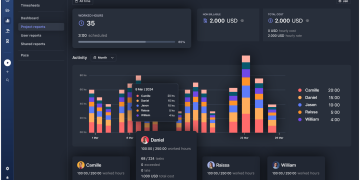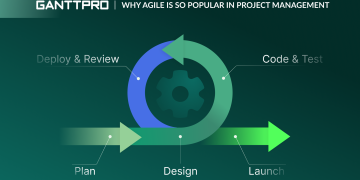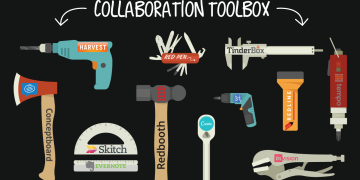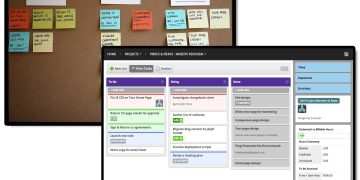In today’s fast-paced, ever-evolving business world, project management tools are indispensable for ensuring that tasks are completed efficiently, on time, and within scope. For non-technical project managers, the challenge is often finding a platform that is intuitive, simple, and yet robust enough to handle the complexities of project management without requiring a steep learning curve or deep technical knowledge. One such tool that has risen to prominence in the field of project management is Basecamp. But is Basecamp truly the best solution for non-technical project managers? This article will explore the various facets of Basecamp, its suitability for non-technical professionals, and compare it with other tools in the market to determine if it’s the right fit.
Table of Contents
- Understanding Basecamp
- The Core Features of Basecamp
- Why Basecamp Appeals to Non-Technical Project Managers
- The Simplicity Factor: A Key Advantage
- Communication and Collaboration Features
- Task Management and To-Do Lists
- Project Organization Made Easy
- Limitations of Basecamp
- Alternatives to Basecamp for Non-Technical Project Managers
- Final Verdict
- Search Keywords for Image Sourcing
1. Understanding Basecamp
Basecamp, founded in 2004 by Jason Fried, Carlos Segura, and Ernest Kim, began as a simple web-based tool for internal communication and project management. Over time, it has evolved into a robust platform widely used by teams of all sizes to organize projects, track progress, and collaborate. Basecamp’s hallmark is its simplicity. It eschews the complexity of many other project management tools, which often require significant technical expertise to use effectively. Instead, Basecamp offers a streamlined user interface with all the essential features required to manage a project from start to finish.
For non-technical project managers, Basecamp is often viewed as a breath of fresh air in a world full of overly complex tools. The platform’s intuitive design and focus on usability make it an attractive choice for those who may not have a background in tech but need a tool that’s both powerful and accessible.
2. The Core Features of Basecamp
Before diving deeper into its suitability for non-technical project managers, let’s take a look at the core features Basecamp offers:
- To-Do Lists: These allow managers and team members to create task lists, set due dates, and assign responsibilities.
- Message Boards: A place for team members to share important updates, ideas, and discussions.
- File Storage: A centralized location for storing documents, images, and other files relevant to a project.
- Real-Time Group Chat (Campfire): A live chat feature that helps teams communicate instantly.
- Automatic Check-ins: A feature that helps teams keep track of progress without the need for constant status meetings.
- Client Access: Basecamp allows clients to be added to specific projects, giving them limited access to certain information.
These features combine to form a simple yet powerful project management tool. Non-technical project managers can leverage these functionalities to organize projects, assign tasks, facilitate communication, and track progress—all without having to learn complex technical skills.
3. Why Basecamp Appeals to Non-Technical Project Managers
So, what exactly makes Basecamp an appealing solution for non-technical project managers? Here are a few reasons:
1. Ease of Use
Basecamp was designed with simplicity in mind, making it intuitive and easy to use. For non-technical project managers who may not be familiar with advanced project management terminologies or software, Basecamp’s clear layout and straightforward features provide a gentle learning curve. Navigating the platform requires minimal training, allowing managers to dive right into project oversight without wasting time learning complex interfaces.

2. Focus on Essential Tools
Unlike other project management tools that pack a multitude of features—many of which require a higher level of technical knowledge—Basecamp focuses only on the essentials. This makes it ideal for non-technical users who simply want to get things done without getting bogged down by unnecessary functionalities. Whether it’s managing tasks, sharing files, or holding discussions, Basecamp offers everything needed for basic project management tasks.
3. Reduced Technical Complexity
Many project management tools come with a wide range of integrations and technical configurations that can be overwhelming for non-technical professionals. Basecamp takes a minimalist approach and limits the number of integrations to keep things simple. Non-technical project managers can use Basecamp to manage their team without needing to know anything about APIs, complex workflows, or intricate coding.
4. No Overwhelming Options
One of the biggest pain points for non-technical project managers is dealing with tools that overwhelm them with options. With Basecamp, users won’t be constantly bombarded with complex features that don’t serve their immediate needs. The tool allows them to focus on what matters—tasks, deadlines, and team collaboration—without distraction.
4. The Simplicity Factor: A Key Advantage
Basecamp’s most significant selling point is its simplicity. For non-technical project managers, simplicity in a project management tool translates to fewer headaches, clearer workflows, and faster adoption across the team. The tool’s clean design and lack of overwhelming features make it easy to onboard new users quickly, ensuring that the focus remains on the project, not on learning how to use the platform.
Basecamp’s interface is clear, with a simple dashboard showing the status of each project, upcoming tasks, and recent activity. This ease of navigation is a massive advantage for non-technical managers who may feel intimidated by the overwhelming complexity of other project management platforms.
5. Communication and Collaboration Features
Effective communication is a cornerstone of any successful project. Non-technical project managers need tools that facilitate smooth and transparent communication, and Basecamp excels in this area.
- Message Boards: Basecamp’s message boards are perfect for discussions that need to be easily referenced later. Unlike email threads that can get lost in clutter, message boards allow teams to share ideas, feedback, and updates in an organized, searchable format.
- Campfire (Real-Time Chat): For day-to-day quick conversations, the real-time group chat feature allows teams to communicate instantly. It’s a low-barrier way to keep everyone on the same page without requiring formal meetings or lengthy email exchanges.
These communication features are intuitive, easy to use, and perfect for teams that need a reliable way to stay in touch without technical expertise.
6. Task Management and To-Do Lists
Basecamp’s task management system is one of its standout features. For non-technical project managers, staying organized and keeping track of deadlines is paramount. Basecamp provides an easy-to-use To-Do List feature that allows project managers to:
- Create tasks and assign them to team members.
- Set due dates to ensure timely completion.
- Attach relevant files and documents directly to tasks.
- Break down tasks into smaller, more manageable sub-tasks.
Additionally, Basecamp lets users organize tasks by project and view them in a way that is visually clear. This is especially helpful for non-technical managers who may struggle with more intricate task-tracking systems.

7. Project Organization Made Easy
Basecamp offers a simple but effective way to organize projects. Each project can have its own dedicated space with its own set of tasks, discussions, and files. This helps keep everything neatly organized and easily accessible. For non-technical project managers, having all project information in one central location eliminates confusion and reduces the chances of losing important documents or information.
Basecamp’s project spaces allow teams to:
- Easily switch between different projects.
- Keep project files and discussions organized by category.
- Access everything they need from a single location.
This centralized approach makes it easier for non-technical project managers to oversee multiple projects at once.
8. Limitations of Basecamp
Despite its many strengths, Basecamp does have its limitations, especially for larger or more complex projects:
1. Limited Advanced Features
Basecamp’s minimalist approach means that it may lack some advanced features that other tools provide, such as detailed reporting, time-tracking, or Gantt charts. For non-technical project managers handling simple, straightforward projects, this isn’t an issue. However, for those managing large teams or intricate projects, the absence of these features can be limiting.
2. No Built-In Budgeting Tools
Basecamp does not offer built-in financial tracking or budgeting tools. For non-technical project managers overseeing projects with tight budgets, this can be a drawback. They may need to integrate Basecamp with other tools for financial management.
3. Limited Customization
Basecamp’s simplicity comes at the cost of customization. While this is beneficial for ease of use, some project managers might find the lack of customization options frustrating when trying to tailor the platform to their unique workflows.
9. Alternatives to Basecamp for Non-Technical Project Managers
While Basecamp is an excellent choice for non-technical project managers, it’s not the only tool available. Here are a few alternatives that might also be worth considering:
1. Trello
Trello uses a card-based approach to project management, which is incredibly visual and intuitive. Non-technical project managers who prefer a drag-and-drop interface might find Trello easier to use for simple task management.
2. Asana
Asana offers more advanced project tracking features than Basecamp while maintaining a user-friendly interface. It may appeal to non-technical managers who want slightly more depth in their task management without a steep learning curve.
3. Monday.com
Monday.com offers a more customizable platform with a clean design and a visual interface. It’s great for teams that need more advanced tracking features but still want a tool that’s easy to use.
10. Final Verdict
Basecamp stands out as one of the best project management tools for non-technical project managers who prioritize simplicity, usability, and straightforward task tracking. Its intuitive interface, essential features, and focus on communication make it an ideal solution for teams that need to manage projects without getting bogged down in technicalities.
However, its lack of advanced features and customization options may make it less suitable for larger teams or highly complex projects. For non-technical project managers, Basecamp is a highly accessible tool that streamlines project management while maintaining a high level of productivity.






















